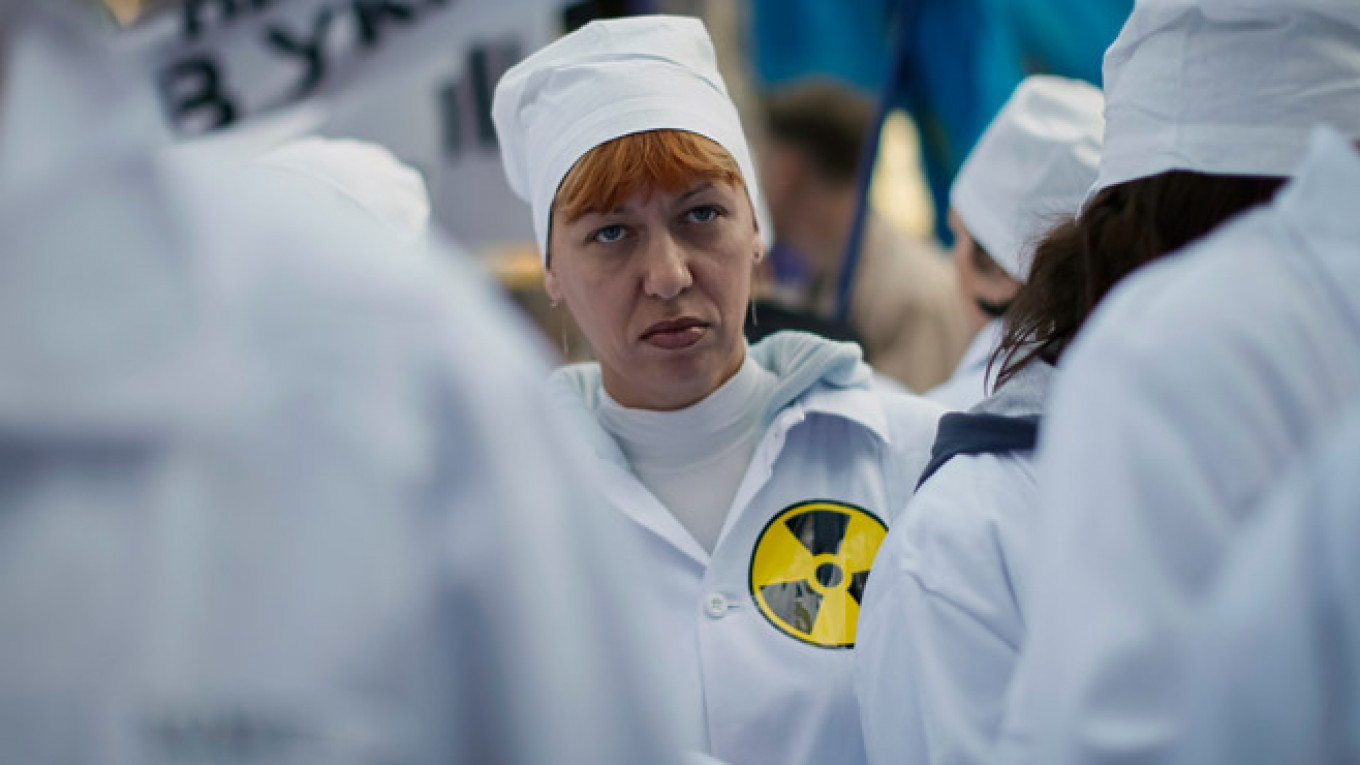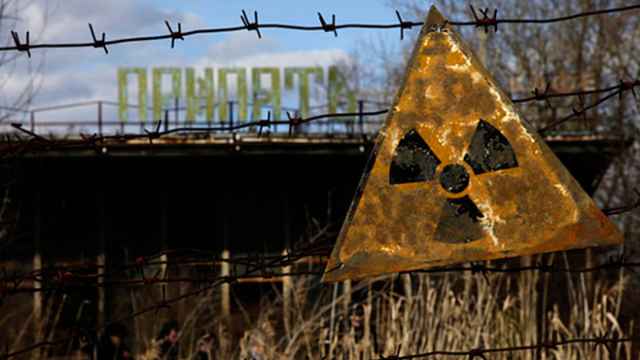Ukraine has been forced to push back the commissioning of a new cover for the Chernobyl nuclear plant back two years because it has run out of money for the project, a Ukrainian official said.
The so-called New Safe Confinement, whose construction began in 2010, will be completed in 2017 instead of 2015 as originally planned, Volodymir Holosha, the official who is overseeing the government's effort in Chernobyl, said in comments to Ukraine's online news website Segodnya.ua on Wednesday.
Construction of the structure is crucial, as the protective cover that is currently in place to contain the reactor could collapse at any moment — an ecological disaster that would affect all of Europe. In 1997, the G7 nations convened to address the threat of this potential catastrophe, and the end result of that meeting was an agreement to set up a $768 million fund to finance the construction of a new sarcophagus.
Now, however, Ukraine needs another 615 million euros ($780 million) for the project in addition to the 600 million euros it has already allocated, Holosha was cited as saying on Wednesday.
A new fundraising effort has been launched by the G7 group of developing economies, he said, without elaborating.
The steel-and-concrete sarcophagus is expected to be constructed next year but will then need to be installed over the melted reactor, Segodnya.ua reported. A representative of the Chernobyl nuclear plant was cited as saying the work will be carried out by robots because of high radiation in the area.
The Chernobyl nuclear power plant went down in history in 1986, when Reactor No. 4 went into meltdown, causing the world's largest nuclear disaster. Soviet firemen, desperate to contain the fallout, sacrificed their lives to construct an ad-hoc sarcophagus over the molten slab of radioactive waste — a measure that was meant only as a stopgap.
A Message from The Moscow Times:
Dear readers,
We are facing unprecedented challenges. Russia's Prosecutor General's Office has designated The Moscow Times as an "undesirable" organization, criminalizing our work and putting our staff at risk of prosecution. This follows our earlier unjust labeling as a "foreign agent."
These actions are direct attempts to silence independent journalism in Russia. The authorities claim our work "discredits the decisions of the Russian leadership." We see things differently: we strive to provide accurate, unbiased reporting on Russia.
We, the journalists of The Moscow Times, refuse to be silenced. But to continue our work, we need your help.
Your support, no matter how small, makes a world of difference. If you can, please support us monthly starting from just $2. It's quick to set up, and every contribution makes a significant impact.
By supporting The Moscow Times, you're defending open, independent journalism in the face of repression. Thank you for standing with us.
Remind me later.






